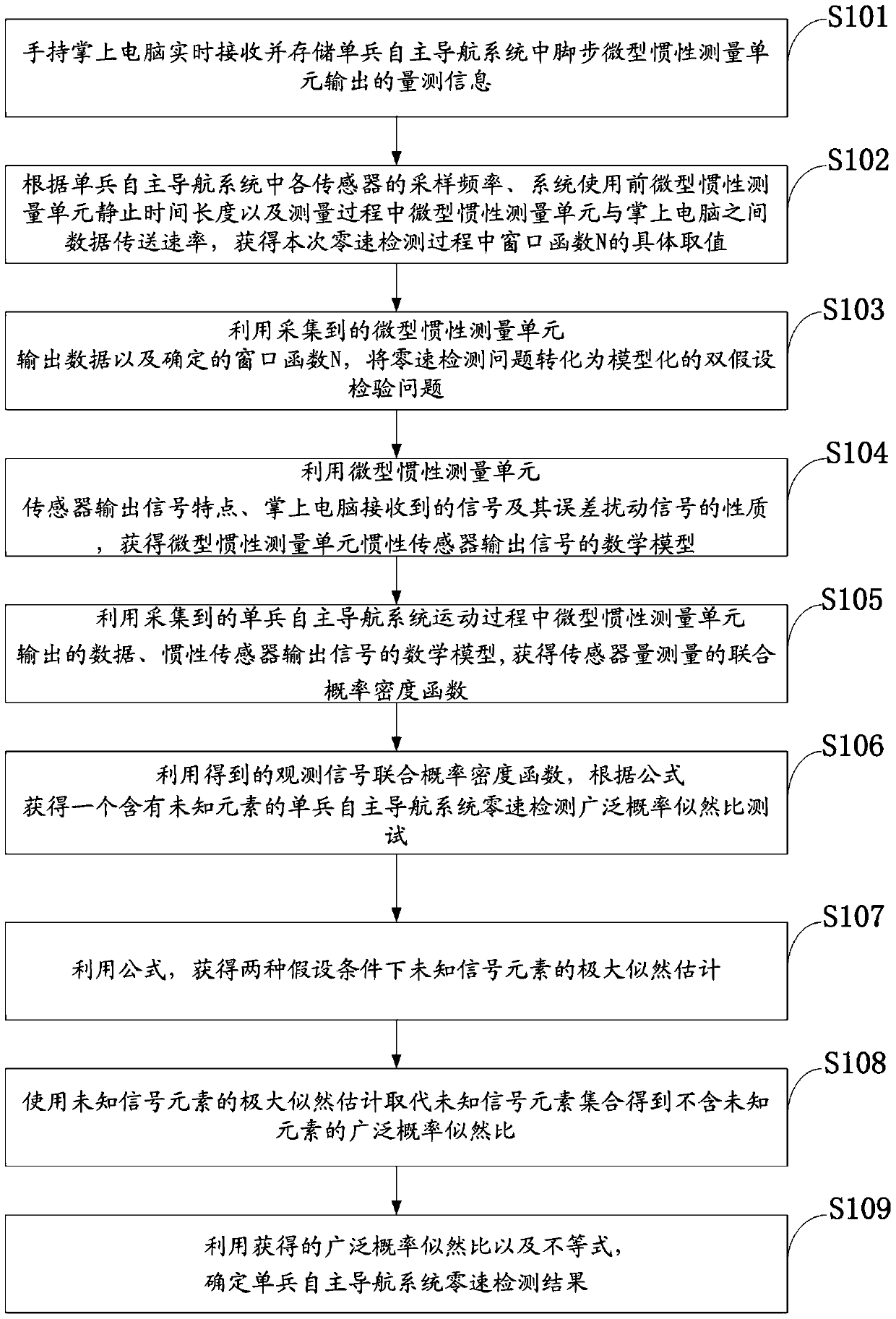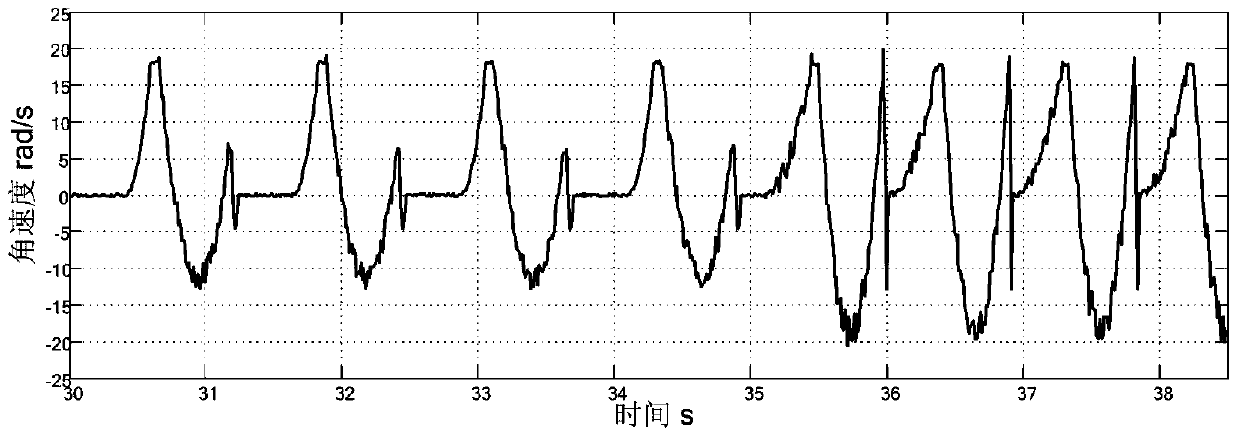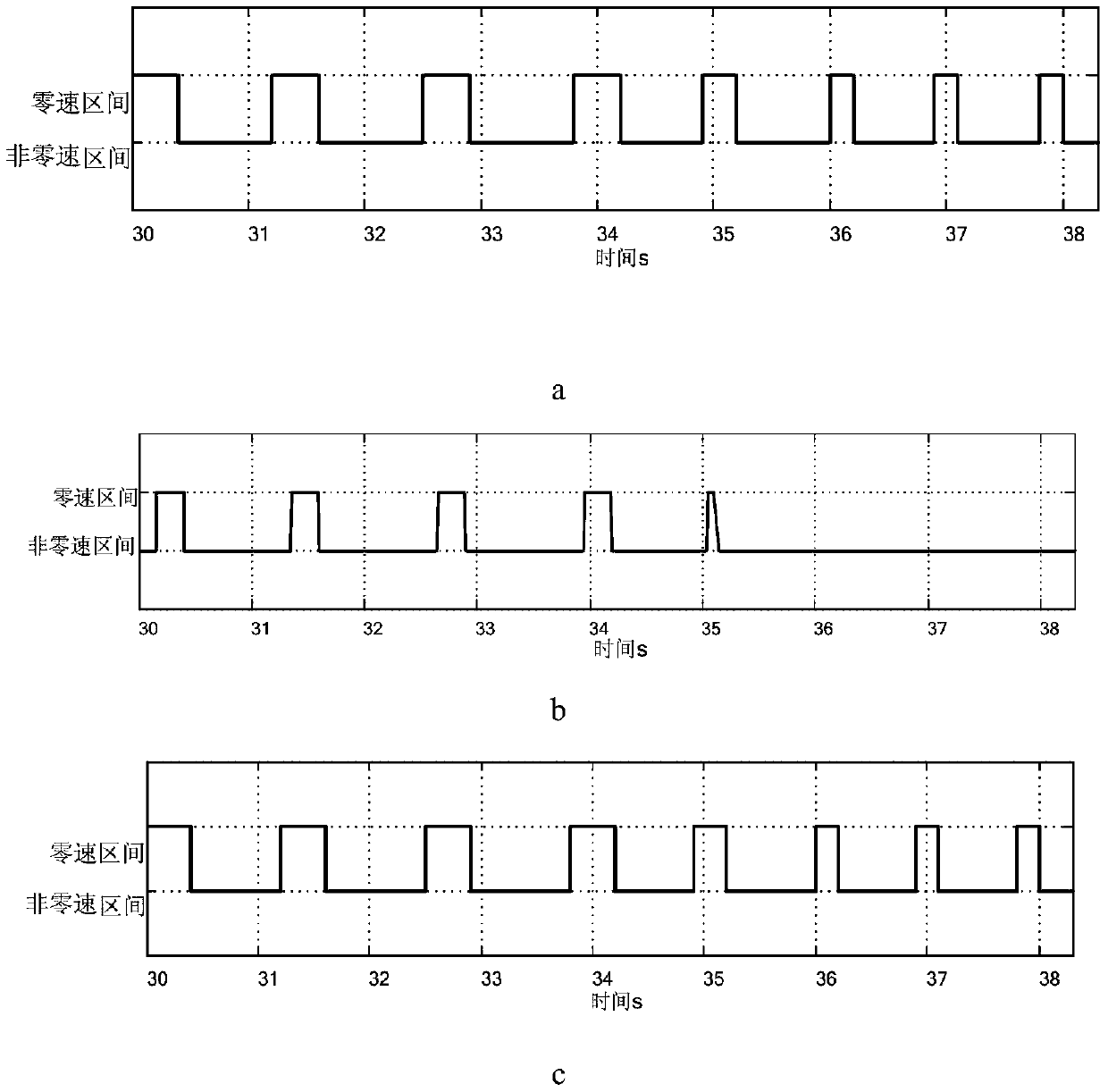A Zero Speed Detection Method Based on Neiman-Pearson Criterion
A detection method and zero-speed technology, which is applied in the field of zero-speed detection of individual soldier autonomous navigation system, can solve the problems of low navigation accuracy, low accuracy, and difficulty in satisfying the accuracy and reliability of individual soldier navigation.
- Summary
- Abstract
- Description
- Claims
- Application Information
AI Technical Summary
Problems solved by technology
Method used
Image
Examples
Embodiment Construction
[0062] In order to make the object, technical solution and advantages of the present invention more clear, the present invention will be further described in detail below in conjunction with the examples. It should be understood that the specific embodiments described here are only used to explain the present invention, not to limit the present invention.
[0063] figure 1 The flowchart of the zero-speed detection method based on the Neiman-Pearson criterion provided by the present invention is shown. For ease of illustration, only the parts relevant to the present invention are shown.
[0064] The zero-speed detection method based on the Neiman-Pearson criterion of the embodiment of the present invention, the zero-speed detection method based on the Neiman-Pearson criterion comprises the following steps:
[0065] Step 1, the handheld handheld computer receives and stores the measurement information output by the step miniature inertial measurement unit in the individual sol...
PUM
 Login to View More
Login to View More Abstract
Description
Claims
Application Information
 Login to View More
Login to View More - R&D
- Intellectual Property
- Life Sciences
- Materials
- Tech Scout
- Unparalleled Data Quality
- Higher Quality Content
- 60% Fewer Hallucinations
Browse by: Latest US Patents, China's latest patents, Technical Efficacy Thesaurus, Application Domain, Technology Topic, Popular Technical Reports.
© 2025 PatSnap. All rights reserved.Legal|Privacy policy|Modern Slavery Act Transparency Statement|Sitemap|About US| Contact US: help@patsnap.com



